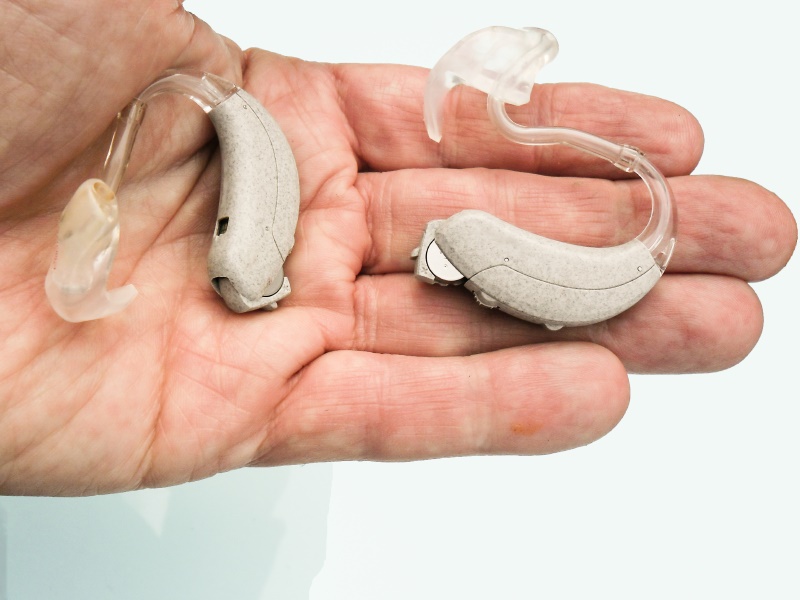
To help keep your hearing aids functioning properly for years to come, you’ll want to learn proper care and maintenance. And while it may feel like an additional burden, with the right system your hearing aid care will come to be simple and automatic.
The key is developing effective habits.
If you integrate your hearing aid care into your daily and nightly routines, before too long it won’t seem like any extra work at all.
Below are a few tips for the daily care of your hearing aids (which your hearing professional will also review with you):
Clean your hearing aids daily – Attempt to incorporate your hearing aid cleaning into your evening routine, so it will become as automatic as brushing your teeth. This is imperative because daily hearing aid cleansing can protect against the accumulation of earwax, dirt, and dust into the various components of the hearing aid, which can cause distorted sound over time.
You’ll want to clean your hearing aid with a smooth, dry cloth, while avoiding any kind of fluids that can damage the hearing aid electronics. Check with your hearing professional for specific guidelines on cleaning each kind of hearing aid.
You may also prefer to consider investing in a hearing aid sanitizer, which makes use of ultraviolet light to safely and completely kill dangerous pathogens. Hearing aid cleaning kits are also available with all of the tools you’ll require to safely and securely clean the device without damaging the electronics.
Check the batteries – Hearing aid batteries should always be examined and replaced regularly to assure peak hearing aid performance. Consider using a battery tester in the morning to ensure you have adequate power for the remainder of the day, and carry a spare set of batteries with you.
Before bedtime, when your hearing aids are not in use, turn them off and store them in a cool, dry place with the battery door open.
Store your hearing aids in a safe and secure place – In regard to storage, you’ll want to try to remember three things:
- Keep the hearing aids away from moisture. This means that storing your hearing aids in the bathroom is probably a bad idea.
- Try to avoid subjecting the hearing aids—and hearing aid batteries—to temperature extremes. You’ll want to store your hearing aids in a cool, dry place.
- Avoid storing your hearing aids out in the open, where they can become damaged.
We highly recommend keeping your hearing aids in a case or drying kit within the drawer of a bedroom side table. This will protect the hearing aids from moisture, temperature extremes, and damage from being bumped off the table.
Also, always remove your hearing aids prior to showering, swimming, or using a hair dryer or hair spray.
Maintain ear hygiene – Even though earwax has several advantageous qualities, including protection and lubrication of the ear canal, it can cause severe damage to your hearing aids. As it becomes wedged within the hearing aid hardware, sound can become distorted.
Ensure that you’re maintaining proper ear hygiene, and if you have excessive earwax, consider setting up a visit with a professional.
Carefully put in your hearing aids – While inserting your hearing aids, lean over a table or soft surface in the event that the hearing aids fall. Hearing aids are made with vulnerable electronics, so a fall on a hard surface can cause severe damage.
Even with vigilant cleaning and maintenance, after a while the hearing aid will call for more detailed cleaning or repair.
To assure that you consistently achieve the best sound possible, we encourage having your hearing aids professionally cleaned by a hearing professional at a minimum two times a year.
Hearing care professionals can provide a deep cleaning, a tune-up, and will sometimes replace parts. Staying on top of this periodic maintenance will expand the life of your hearing aids and will ensure that you get the best sound.
